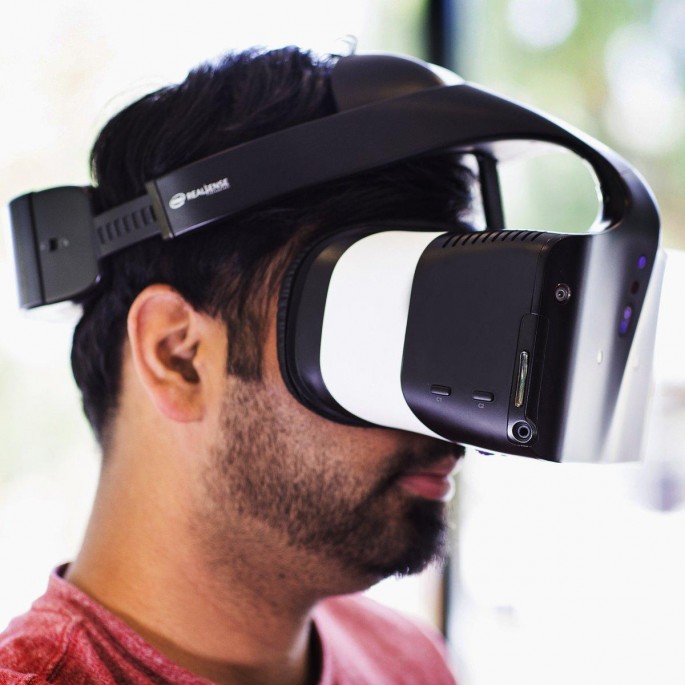Intel remains the world's largest PC chip maker but this week's Intel Developers Forum (IDF) in San Francisco showed the company is expanding its business beyond computer chips. The IDF 2016 dev conference in San Francisco included brand new technology such as virtual reality (VR) headsets, robots, drones, Raspberry Pi-like mini computers, 5G networks, and even DJ tables. It was also a big surprise when the chip maker announced it is willing to build custom ARM chips that could be used in mobile devices.
This year's three-day event started on August 16, Tuesday. The first day's keynote featured a wireless VR headset developed by Intel and Microsoft.
Project Alloy combines the Oculus Rift and HTC Vive VR headsets with Microsoft's HoloLens augmented reality (AR) headset. The device's RealSense 3D cameras show real-world objects in a virtual world.
Intel will open-source the VR headset's design in mid-2017.
The chip giant also announced that it is willing to build custom chips with ARM-based designs, according to PCWorld. This shows that the company has dropped x86-based mobile chips.
Intel also introduced its development kit for drones called Project Aero. The dev kit includes a flight controller, Long-Term Evolution (LTE) communications, and RealSense camera. Project Aero can be pre-ordered for $400 although Intel CEO Brian Krzanich did not announce a shipping date.
Intel also showed off the benefits of USB-C digital audio over 3.5mm headphone jacks. Apple has reportedly removed the analog port from iPhone 7 devices likely to launch next month.
The tech company also wants to turn entire smart homes into Internet of Things (IoT) devices. Small sensors would be added to the building's infrastructure including beams and foundations.
Intel also unveiled its future plans for self-driving cars. Intel is teaming up with automakers such as Germany's BMW and China's Baidu to develop on-board systems and data centers so cars and trucks can navigate together.
The Silicon Valley company augurs that 120 million cars on the road will have some kind of autonomous vehicle (AV) tech by 2030. It wants to launch the first version of its driverless car platform by 2021.
In related news, a block away from the IDF conference Advanced Micro Devices (AMD) announced that its Zen processor exists and is set to ship early next year, according to Engadget. The target market of AMD's last few chips were budget builders yet the new processor is designed for state-of-the-art PC gaming.
AMD's chips have already powered gaming consoles including Sony's PlayStation 4 and Microsoft's Xbox One. They are also included in the new Xbox One S and future Project Scorpio.
Here's Intel's AR/VR headset:



























